$1.4T spent, still thirsty and in the dark: Iraq’s budget legacy under scrutiny
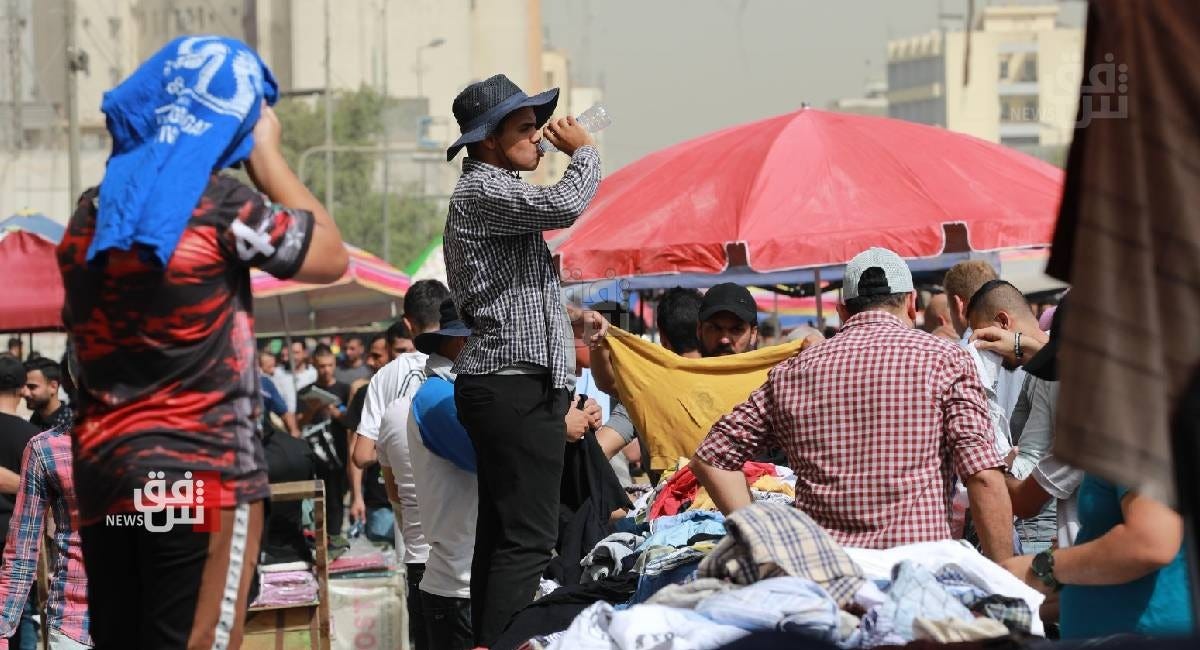
Since the 2003 US-led invasion that toppled Saddam Hussein and ushered in Iraq’s new political system, the country has passed through successive cycles of democratic governance—interim councils, elected parliaments, and constitutional drafting. However, behind the surface of institutional progress, one governing mechanism has defined Iraq’s modern trajectory: the federal budget.
A Wealthy Country, A Failing State
Iraq, home to the Tigris and Euphrates rivers and among the world’s top oil exporters, still grapples with drought-stricken cities, overflowing sewage, and chronic blackouts. Basic services—such as potable water and drainage—collapse with the first rainfall or summer heatwave. While official rhetoric promised revitalization, funds were siphoned, projects abandoned, and corruption normalized.
Can a country with this level of resources fail so profoundly? A comprehensive review by Shafaq News reveals the answer.
$1.396T in Budgets: Where Did It Go?
Shafaq News reviewed all publicly available Iraqi federal budgets from 2006 to 2024, identifying a total of $1.396 trillion in allocations:
-2006–2009: Budgets ranged from $34 to $43 billion, with limited detail and few visible outcomes.
-2010: A surge to $72.5 billion included large reconstruction promises—like rebuilding Baghdad’s Sadr City and modernizing Basra and Nineveh—that never materialized.
-2011–2013: Budgets peaked at $115 billion in 2013, still with no systemic infrastructure gains.
-2014-2020: No budgets were passed due to ISIS's incursion and political turmoil.
-2015–2019: Budgets fluctuated between $66 and $112 billion, mirroring oil prices and instability.
-2021: $89.6 billion allocated, including large energy-related loans.
-2022: Another political deadlock year with no budget.
-2023–2024: Historic highs—$153 billion and $155 billion respectively—under a newly introduced three-year budget plan.
-2025: is yet to be approved due to political disagreements.
According to economists consulted by Shafaq News, these amounts could have funded a national dam network, modern power grid, urban drainage systems, and even a sovereign wealth fund for future generations. Instead, they argue, the country is trapped in a cycle of waste and inertia.
Water Crisis Amid Budget Surpluses
Despite soaring budgets, Iraq faces unprecedented water scarcity. Entire provinces—Maysan, Dhi Qar, and Basra—suffer from arid farmland, declining crop yields, and depleted fish stocks. Yet, the cost of building two critical dams—Basra and Makhoul—is a fraction of annual spending:
-Basra Dam: Estimated at $1.1 billion. Discussed for over a decade. Still not built.
-Makhoul Dam: Announced in 2022 with a projected $3 billion price tag. Still in the planning phase.
Environmental studies, including UN-backed assessments, warn Iraq is just five years away from “critical water poverty,” yet execution remains stalled.
Flooded Streets, Collapsed Drains
Seasonal rainfall routinely submerges Baghdad and other cities in stagnant water, exposing the absence of functional sewage infrastructure. Projects meant to address this are themselves mired in delays and mismanagement:
-Hilla Grand Sewage Project in Babil Province: Halted for a decade, revived in 2019 for $290 million.
-Al-Saniya Project in Al-Diwaniya Province: Contracted for $26 million with no clear progress.
Economists argue these cases show that funds are funneled into stalled contracts or front companies, not actual development.
Electricity: $17 Billion and Still in the Dark
Despite being one of the world’s top oil producers, Iraq endures daily power outages. The core issue: Iraq imported gas-powered plants without ensuring gas supply, forcing reliance on Iranian imports—costing $17 billion since 2017.
Examples of energy budget inefficiencies include:
-2021 Budget: Contained $145 million in power-related loans, plus $100 million for maintenance.
-Al-Dora Station (Baghdad): Allocated $301 million for maintenance alone, with no measurable improvement.
Scandals
Moreover, significant portions of budgeted amounts are either unspent or lost to inflated contracts. Notable scandals include:
-2012 Russian Arms Deal: Cancelled amid $4.2 billion corruption allegations.
-2022’s Theft of the Century: $2.5 billion embezzled from the tax authority. The main suspect, Nour Zuhair, was later released on bail and regained assets.
Currency Smuggling and US Intervention
By 2022, rampant money laundering—often via banks tied to political elites—prompted the US to impose international financial oversight on Iraq’s banking system to curb dollar smuggling.
A Bureaucracy-Funded State
Operational spending—salaries, pensions, and personal allowances—dominates the budget. Iraq employs over 4 million civil servants and pays 2 million retirees. Prime Minister Mohammed Shia al-Sudani confirmed that last year’s public payroll alone reached 64 trillion dinars (roughly $49 billion).
Meanwhile, Shafaq News investigations found that Iraq’s parliament has cost $325 million since 2006 in salaries, allowances, and security.
According to a 2023 policy review by the Iraqi Economists Network, Iraq’s federal budget process “prioritizes disbursement over delivery,” with more than two-thirds of spending absorbed by salaries, subsidies, and imports.
Regional Comparisons: Spending vs. Outcome
Over the past 18 years, Iraq’s total expenditure has surpassed many larger or more diversified economies:
-Iraq: $1.396 trillion spent for a population of ~44 million, yet it suffers from decaying infrastructure, persistent blackouts, and water stress.
-Turkiye: Spent $1.2 trillion for 85+ million people—delivering modern highways, rail, food self-sufficiency, and industrial expansion.
-Iran: Spent $1.1 trillion under sanctions, achieving self-sufficiency in medicine and agriculture, and a robust defense sector.
-Saudi Arabia: Topped $2.2 trillion, but built modern infrastructure, launched megaprojects like NEOM, and established an $800 billion sovereign wealth fund.
A System in Stasis
While regional peers harnessed their budgets for long-term national gains, Iraq remains mired in outdated systems, paper dams, and half-built stations. Budget cycles have turned into political bargaining chips rather than engines of national development.
As experts warn of worsening climate and energy pressures, the question facing Iraq’s next political cycle isn’t just about funding—but about whether the state can reform how it spends.
Note: All figures are estimates based on data from Iraq’s Ministry of Finance, the World Bank, and national sovereign funds.
🧠 What’s Most Important in This Article?
Iraq has spent more than most regional peers yet has almost nothing to show for it. The country’s systemic failure isn’t due to lack of funds—but because of how those funds are handled. This article exposes how a rentier state with vast resources can still fall apart under poor governance, and why urgent reform is non-negotiable.
Lawsuit filed against Al-Sudani and the Minister of Finance due to the delay in the budget schedules.
MP Ahmed Majeed, representing the Ishraqat Law bloc, announced on Sunday that he had filed a lawsuit with the Supreme Judicial Council against Prime Minister Mohammed Shia al-Sudani and Finance Minister Taif Sami, over the government's delay in submitting the general budget law schedules to the House of Representatives.
Majeed told Shafaq News Agency, "The government has been in office for more than half a year and has not sent the budget tables to parliament, despite this being a legal and constitutional obligation." He noted that "this delay has caused significant harm to various state institutions and disrupted their work."
The MP called on the government to "expedite the dispatch of the schedules as soon as possible in order to remedy the damage caused by this delay and enable Parliament to fulfill its oversight and legislative role on this vital issue."
The Parliamentary Finance Committee confirmed on Friday that the government's delay in submitting the 2025 budget schedules to Parliament for ratification constitutes a legal violation. While anticipating that the schedules will not be submitted soon, the committee called on the government to begin preparing a draft 2026 budget law.
Iraq maintains its position among the largest Arab economies in 2025.
Data released by the International Monetary Fund (IMF) on Sunday showed that Iraq ranked fifth among the largest Arab economies in 2025 in terms of nominal gross domestic product (GDP), with a total of $259.02 billion.
According to the data, Saudi Arabia came in first with $1.083 trillion, followed by the UAE with $548.6 billion, Egypt in third place with $347.59 billion, Algeria in fourth place with $268.88 billion, and Iraq in fifth place with $259.02 billion.
Qatar came in sixth place with $222.78 billion, followed by Morocco with $165.84 billion, Kuwait with $153.1 billion, Oman in ninth place with $103.35 billion, and finally Tunisia in tenth place with $96.29 billion.
These figures indicate a clear disparity in the size of Arab economies. The Gulf states occupy the top positions thanks to their energy resources and massive investments, while the economies of North Africa stand out for their varying demographic and economic weight.
The Iraqi economy continues to maintain its position among the five largest Arab economies despite political, security, and service-related challenges, relying on its oil wealth and geographical location.
With stable oil prices and the government's drive to diversify its sources of income, Iraq has a real opportunity to strengthen its economic position in the coming years.
The Houthis announce carrying out military operations against 3 Israeli targets.
Yemen's Ansar Allah movement (Houthis) announced on Sunday that it had carried out military operations against three Israeli targets in the Jaffa and Ashkelon areas, as well as the port of Haifa.
Houthi military spokesman Brigadier General Yahya Saree said in a statement that "the Yemeni armed forces' drone air force carried out three special military operations targeting three Israeli enemy targets using three drones. Two of the operations targeted two Zionist enemy military targets in the Jaffa and Ashkelon areas, while the third targeted the port of Haifa in occupied Palestine."
Saree stressed that "Yemen will continue its support operations until the aggression stops and the siege on the Gaza Strip is lifted."
Since October 2023, the Houthis have been carrying out military operations against Israel, claiming that they are supporting Gaza in the face of the Israeli war.
NEW DEVELOPMENT
The Iranian parliament approves the deletion of four zeros from the national currency.
the are moving forward now we have to see how this effects those who hold the current currency
Iran's parliament on Sunday approved a bill to remove four zeros from the national currency, a move aimed at streamlining financial transactions and addressing the effects of persistent inflation that has plagued the country's economy for years.
The Iranian Shura Council's website, Ikana, quoted the head of the council's economic committee, Shams al-Din Hosseini, as saying, "Today's meeting of the economic committee approved the name of the rial as the national currency, as well as the removal of four zeros."
Central Bank Governor Mohammad Reza Farzin announced last May that the Iranian rial "does not have a positive image" in the global economy.
According to the draft law, the new riyal will be equivalent to 10,000 current riyals and will be divided into 100 qirans, a unit equivalent to a cent, according to the same source.
The proposal was first proposed in 2019 before being withdrawn. It must be put to a vote in the Majlis and approved by the Guardian Council, the body responsible for reviewing laws.
In recent years, the rial has continued to decline, particularly after the United States withdrew from the agreement on Iran's nuclear program in 2018 and reimposed sanctions on Tehran.
The decline has also accelerated since US President Donald Trump returned to the White House in January, after his first term was marked by a policy of "maximum pressure" on Iran.
The daily newspaper Donia Al-Eqtisad reported that the dollar exchange rate on the black market reached 925,000 riyals on Sunday, compared to 913,500 riyals on Saturday.
The spokesman for the Shura Council's Economic Committee, Governor Mamkan, indicated last Monday that the government's proposal aims to "facilitate transactions and audits within state institutions."
To simplify transactions, Iranians have for years called their currency the toman, subtracting zero from the rial's value, which can be confusing for foreign visitors.
article from Fortune
Iran’s currency has plunged so much in value that Tehran plans to chop off four zeros from the rial
The economic commission of Iran’s parliament revived long-delayed plans on Sunday to cut four zeros from the country’s plunging currency, as part of efforts to simplify financial transactions.
“Today’s meeting of the economic commission approved the name ‘rial’ as the national currency, as well as the removal of four zeros,” said the parliament’s website ICANA, quoting Shamseddin Hosseini, the commission’s chairman.
Under the proposed system, one rial would be equivalent to 10,000 at the current value and subdivided into 100 gherans, according to ICANA.
The proposed redenomination was first mooted in 2019 but then shelved. The current bill will have to pass a parliamentary vote and gain the approval of the Guardian Council, a body empowered to vet legislation.
It was not immediately clear when the parliamentary vote would take place.
In May, Iran’s Central Bank Governor Mohammad Reza Farzin said he would pursue the plan, noting that the Iranian rial “does not have a favourable image” in the global economy.
The move comes as Iran faces deepening economic challenges, including runaway inflation, a sharply devalued currency, and the prolonged impact of international sanctions.
As of Sunday, the rial was trading at around 920,000 to the US dollar on the street market, according to local media and the Bonbast website that monitors unofficial exchange rates.
In practice, Iranians have long abandoned the rial in everyday transactions, using the toman instead. One toman equals 10 rials.
Iran’s economy has long been under severe strain due to sweeping US sanctions since Washington’s 2018 withdrawal from a landmark nuclear deal during US President Donald Trump’s first term in office.
Upon returning to office in January, Trump revived his “maximum pressure” sanctions campaign on Tehran.
In June, Iranian lawmakers approved new economy minister Ali Madanizadeh after his predecessor, Abdolnaser Hemmati, was ousted in a no-confidence vote for failing to address the country’s economic woes.
Want to support My FX Buddies?
Support My FX Buddies Big or Small I appreciate it all
BuyMeACoffee CashApp:$tishwash
https://paypal.me/tishwash
Source: The Central Bank of Iraq has suspended the Bank of Baghdad from dealing in dollars.
An informed source reported that the Central Bank of Iraq has issued a decision to suspend the Bank of Baghdad from dealing in US dollars, in a new step aimed at strengthening oversight of financial transactions and combating manipulation in the foreign exchange market.
The source, who requested anonymity, told Al-Mustaqilla on Sunday that the decision was part of a series of measures taken by the Central Bank to curb currency smuggling and stabilize the dinar-dollar exchange rate, following the detection of violations related to transfer mechanisms and foreign transactions.
Bank of Baghdad is one of the largest private banks in Iraq and has a prominent presence in the banking market. This decision will have a significant impact on banking and commercial operations, especially in light of the challenges facing the country's financial system.
No official comment has yet been issued by the bank concerned, but it is expected that this move will be followed by similar decisions against other banks and financial institutions that may be proven to be involved in financial violations or abuses in the use of the US dollar.
It is noteworthy that the Central Bank of Iraq has recently intensified its oversight measures on foreign currency auctions and external transfers, in an attempt to control the market and restrict speculation and smuggling, which directly impact the country's economic stability.
New sanctions expected on Iraqi banks after the decision to suspend the Bank of Baghdad.
An informed source revealed that the Central Bank of Iraq intends to impose additional sanctions on a number of local banks in the coming days for violations related to the mechanism for dealing in US dollars. This comes days after it decided to suspend the Bank of Baghdad from conducting any dollar transactions.
The source, who requested anonymity, confirmed to Al-Mustaqilla on Sunday that these measures come after important meetings recently held in Istanbul between Iraqi and international delegations, during which the Iraqi side was informed of the need to tighten controls on financial transfers, regulate dollar transactions, and prevent its use in activities that violate international standards of transparency and anti-money laundering.
The source added that the banks subject to sanctions had violated instructions regarding the provision of transparent data about their customers and transfer mechanisms, or had failed to comply with "Know Your Customer" (KYC) procedures, a fundamental principle in combating money laundering and terrorist financing.
This move is part of broader efforts by the Central Bank of Iraq to control the foreign exchange market and reduce illicit reliance on the dollar, particularly following increasing indications of its smuggling out of the country through unregulated banking channels.
Observers believe that these sanctions may extend to other prominent banks if they fail to comply with the required reforms, amid US and international pressure on Iraq to modernize its financial system and strictly implement international standards.
Source: Bank of Baghdad suspended from dollar transactions due to transfer violations
An informed source within the Bank of Baghdad revealed to Al-Mustaqilla on Monday that the Central Bank of Iraq's decision to suspend the bank's transactions in US dollars came as a result of "previous violations" related to financial transfers that took place during the term of the previous administration, which was recently dismissed.
According to the source, the bank's new management is currently working to address these violations in coordination with the US Federal Reserve and the Central Bank of Iraq, through a series of strict oversight measures and a comprehensive audit of all previous transfers. The source confirmed that all transfers have already been sent to the US Federal Reserve, which is awaiting official clarifications from the Central Bank of Iraq regarding the bank's corrective steps, in preparation for relaunching these transfers.
The source explained that there is a "targeted campaign" aimed at tarnishing the bank's reputation, led by parties harmed by the successes achieved by the Bank of Baghdad over the past two years, particularly after it was named the best bank in Iraq for the second year in a row. He added that "what is happening today reflects a state of envy, resentment, and contempt from parties that do not want the bank to continue its leading position in the Iraqi banking market."
Banking sources had previously confirmed that the Central Bank of Iraq had issued an official decision to suspend the Bank of Baghdad from dealing in dollars, without providing precise details regarding the reasons for this measure or its duration.
The Iraqi banking sector is awaiting the outcome of ongoing investigations and regulatory measures, amid concerns about potential repercussions for financial transactions and customers at home and abroad, particularly in light of the strict restrictions imposed by US institutions on international money transfers.
Economist: Declining purchasing power limits the rise in the exchange rate

He added in a statement to Al Furat News that "demand depends on the purchasing power of the Iraqi citizen. Currently, purchasing power is weak and is likely to continue due to the financial crisis and delays in salary disbursements, which is a large segment."
Nouri pointed out that "if the election campaign proceeds along the correct democratic path, without exploiting public funds or influx of foreign funds, the dollar's value will remain at its current level without excessive increases."
Saudi Investor Protection Law in the Iraqi Parliament: Dimensions and Implications - Urgent
Economic expert Ahmed Al-Tamimi confirmed on Sunday (August 3, 2025) that the draft law "Saudi Investor Protection," which is being discussed in the House of Representatives, represents a step towards adopting a legislative model that contributes to stimulating the national economy and attracting foreign capital, by drawing inspiration from successful regional experiences, most notably the Saudi experience.
Al-Tamimi told Baghdad Today, "Saudi law is distinguished by several key pillars, most notably the clarity of executive regulations, the simplification of administrative procedures through the adoption of digital platforms and the reduction of bureaucracy, as well as the provision of legal guarantees, most notably the protection of property and the guarantee of fair compensation in the event of its expropriation, in addition to the freedom to transfer profits."
He added, "One of the most important strengths of the Saudi experience is its permission to resort to international arbitration to settle disputes, which enhances confidence in the investment environment and ensures equality between local and foreign investors in rights and duties, which consolidates the principle of justice and increases competitiveness."
Al-Tamimi pointed out that "the Iraqi parliament is now required to draft a modern investment law based on the principles of transparency, speedy procedures, and stable legislation, in addition to strengthening the independence of the commercial judiciary and activating arbitration tools, while providing special tax and customs incentives in vital sectors such as agriculture, industry, and renewable energy."
Al-Tamimi emphasized that "the Saudi experience should not be copied verbatim, but rather adapted to fit the Iraqi reality, emphasizing that attracting investment begins with building trust. This trust stems first from the strength of the law and its fair application, followed by providing a safe and stable economic environment for investors."
For years, Iraq has been seeking to revitalize its faltering investment environment due to security challenges, complex bureaucracy, overlapping jurisdictions among government agencies, and the absence of legislation attractive to foreign investors. Despite the existence of "Iraqi Investment Law No. 13 of 2006," many economists consider it insufficient to stimulate capital inflows, especially given the absence of effective legal guarantees and weak enforcement of the law.
In contrast, Saudi Arabia has emerged as one of the regional countries that has achieved significant strides in attracting foreign investment through legislative and institutional reforms, most notably enhancing transparency, facilitating procedures, and ensuring investor protection. These reforms have contributed to raising the Kingdom's ranking in international ease of doing business indicators.
Summer for street vendors in Iraq: Braving the blazing sun to earn a living
Under a blazing sun and temperatures that sometimes exceed half a boiling point, street vendors stand in Iraq's crowded streets for long hours every day, earning a living for their families. They have no roof to protect them from the scorching sun, which has exacerbated their suffering and sometimes caused fainting and exhaustion among some of them. This is amid the difficult living conditions endured by a country exhausted by crises, unemployment, and high poverty rates .
Iraq has been experiencing an extremely hot summer for more than a month, with daily temperatures hovering around 50 degrees Celsius and sometimes exceeding it by several degrees. Authorities are issuing health warnings urging people to avoid direct sun exposure, while most government departments have taken precautionary measures by reducing working hours.
Amid these tense conditions and harsh environmental and living conditions, Abu Abdullah, a 43-year-old Baghdad resident, confirms that he stands for at least 12 hours a day under the sun selling bread on one of the city's streets. He told Al-Araby Al-Jadeed, "I cannot leave work even for a single day because I rely on it primarily to provide for my children, and I have no other source of income."
"We sell bread on sidewalks and at intersections, and sometimes we wander through alleys and streets. The asphalt burns our feet and the sun scorches our heads. We face extreme suffering, exacerbated this summer by the unprecedented temperatures," he said. "It's true that we wear hats to protect our heads from the sun, but that's not enough. The heat exhausts our bodies and causes us to become thin and dehydrated."
I dropped out of school because of my family's circumstances," says 11-year-old Hossam Ali. "My brother and I support ourselves by selling water bottles on the streets." He told Al-Araby Al-Jadeed, "We've been accustomed to this daily work for years. We were forced to drop out of school and stand for long hours during the day and night at intersections selling cold water. The heat of the sun is like a war we face every day and are forced to endure." He added, "We have no alternative. If we stop working, who will support our families? There is no government interest or care from any party. We face life with all its circumstances."
The risks of this work are exacerbated in the summer due to high temperatures, a lack of health insurance, and the lack of suitable conditions for them. Dr. Maha Abdul Karim, a physician at a health center in Baghdad, confirms that "there is a clear increase in cases of sunstroke and heat exhaustion recorded daily." She explained to Al-Araby Al-Jadeed, "Our center and other health centers receive many of these cases daily, most of which are street vendors who suffer from sunstroke, fatigue, dehydration, and skin rashes resulting from prolonged exposure to the sun."
She added, "These cases are serious and can sometimes worsen. We advise everyone to avoid direct exposure to sunlight, especially during this period, but what about street vendors? They cannot leave work for any reason." She called on the government and relevant authorities to "support this vulnerable group who are facing illnesses in order to earn a living."
Legislative inadequacy and lack of guarantees
He added, "There is a legislative deficiency in providing financial and health protection for these people, and they have been left to face their fate on their own in the absence of any alternatives." He emphasized "the need for the government and parliament to pay attention to this group and issue supportive laws for them, especially in emergency circumstances." Unofficial estimates indicate that more than 60% of workers in Iraq belong to informal employment, with street vendors at the forefront.
A government initiative to diversify the economy and boost investment confidence.

Throughout history, gold has maintained a cultural symbolism and enduring economic value. To leverage this status for the benefit of the national economy, Prime Minister Mohammed Shia al-Sudani launched an initiative to transform Baghdad into a regional center for the gold and jewelry industry and trade. The initiative, approved by the Ministerial Council for the Economy, aims to capitalize on Iraq's natural resources in gold and precious metals, regulate the local market, attract investment, and build value chains within the country.
strategic move
In this regard, economic and banking expert Dr. Nabil Rahim Al-Abadi explains that amid accelerating global economic fluctuations, demand for gold as a safe haven has surged. He explains that Prime Minister Mohammed Shia Al-Sudani's initiative to open the door to gold investment with strong government support and guarantees underscores the government's strategic direction to keep pace with global trends.
Al-Abadi added, in an interview with Al-Sabah, that gold is not just a valuable commodity, but has turned into a major investment tool in the portfolios of financial institutions and individuals alike, especially with expectations of its price rising to $3,500 per ounce by the end of this year, according to reports from Goldman Sachs Bank.
investor confidence
He pointed out that global markets are witnessing a fundamental shift in dealing with the "yellow metal," especially with the rise in inflation and the decline in investor confidence in traditional currencies. He emphasized that during major crises, such as the Corona pandemic and the Russian-Ukrainian war, the price of gold rose by percentages ranging between (19-24)%, which strengthened its position as one of the most important hedging tools against economic risks.
Successful experiences
He said that leading experts, such as Peter Schiff of Europak, have warned that the world is facing the largest wave of inflation in modern history, which has prompted central banks around the world to increase their gold reserves. He pointed out that the most successful model that Iraq can adopt is the system of gold exchange-traded funds (ETFs), which provide high liquidity and significantly reduce storage and insurance costs. The Gold Shares Fund, for example, is the largest gold fund in the world, managing assets amounting to hundreds of billions of dollars, making it an ideal model that can be applied to the Iraqi market.
Golden Certificates
He added that it is also possible to benefit from the experience of gold certificates offered by banks such as Banque Misr and Mashreq Bank, which allow investors to own gold without the need to store it physically, with full guarantees from the Central Bank, adding that there is a digital gold model, launched by Saudi banks such as Al Rajhi, which allows the buying and selling of gold with a minimum of (10) grams via phone applications, making it accessible to small investors.
strict regulatory framework
When asked how Iraq could transform gold into an economic engine, the economist and banking expert explained that for the initiative to succeed, a strict regulatory framework must be established, including the establishment of an independent oversight body to oversee the quality of gold in circulation and the adoption of a transparent pricing mechanism that reflects global prices.
banking infrastructure
He emphasized the importance of developing an integrated banking infrastructure, including digital platforms for the immediate buying and selling of gold, along with tax exemptions to encourage storing gold in bank vaults rather than at home. He also proposed providing low-interest gold-backed loans, allowing businesspeople to benefit from price fluctuations without significant financial risk. He also emphasized the importance of building central vaults secured according to global security standards, which would be a crucial step in ensuring investor confidence.
Challenges and risks
Al-Abadi believes that there are challenges that cannot be ignored, most notably: price fluctuations, as the difference between the buying and selling price may reach (15%) in some unregulated markets, which requires imposing a regulatory ceiling not exceeding (1.5%), in addition to the risks of home storage, which increases the possibility of theft, which requires incentives to encourage storage in bank vaults. He also believes that the trading of fake gold is a constant risk in emerging markets, and requires obligating banks to issue guarantee certificates of purity.
gradual strategy
He noted that Iraq could become a major player in the regional gold market if it follows a gradual strategy, starting with building the necessary infrastructure within six months, then launching digital platforms and certificates of deposit within a year, and finally linking the local market to global gold exchanges within three years. He noted that the success of this initiative will depend not only on government support, but also on tripartite cooperation between the government as a guarantor, banks as a carrier, and investors as a key driver. In times of crisis, gold becomes a currency of trust that can contribute to strengthening the Iraqi economy and integrating it into the global market with steady steps, rather than just being an investment.
fundamental reforms
For his part, economic expert Asaad Al-Rubaie said: “The current government has launched a series of steps to diversify financial revenues away from oil by implementing a package of fundamental reforms targeting non-oil revenues, including reforming the tax system by expanding the tax base, automating collection, combating tax evasion, supporting the private sector, and establishing strategic projects such as petrochemical plants and paving and expanding strategic roads, which represent a very important part of the success of any economic renaissance.” He indicated that the recent approval by the Ministerial Council for the Economy to establish the International Gold City in Baghdad comes in line with the objectives of the government program to support industrial development and provide job opportunities.
Diversifying the economy
Al-Rubaie, speaking to Al-Sabah, considered launching such an initiative to localize the gold industry an important tributary to diversifying the economy away from oil, adding an important and strong pillar to the Iraqi economy and consolidating Iraq's economic position on the global map. It may be the first step in presenting Baghdad as a regional economic center, representing an excellent destination for global capital to invest in, and offering it as a competitor to other countries and cities such as Dubai, Istanbul, and others.
Integrated city
Al-Rubaie explained that the project aims to launch an integrated city with international standards for the gold industry, including units for gold and jewelry crafting, training and qualification centers for national cadres, and advanced markets and a stock exchange for gold trading. He described the initiative as reflecting a significant economic transformation aimed at localizing the gold industry and creating jobs, while supporting the private sector and enabling it to play a greater role in the national economy.
City of Gold
He added that Baghdad will have a strong influence and presence in the gold sector. In the year (2023), the Iraqi gold stock reached (145) tons, according to data from the World Gold Council. The country ranked first in the Arab world and seventh globally among the central banks that bought the most gold last year. He pointed out that the city of gold makes Baghdad an integrated regional hub that brings together manufacturing, training, marketing and trading in an integrated environment, and presents Baghdad as a regional competitor for the gold industry and its formulation. And re-export it.
RAte Anomoly Video
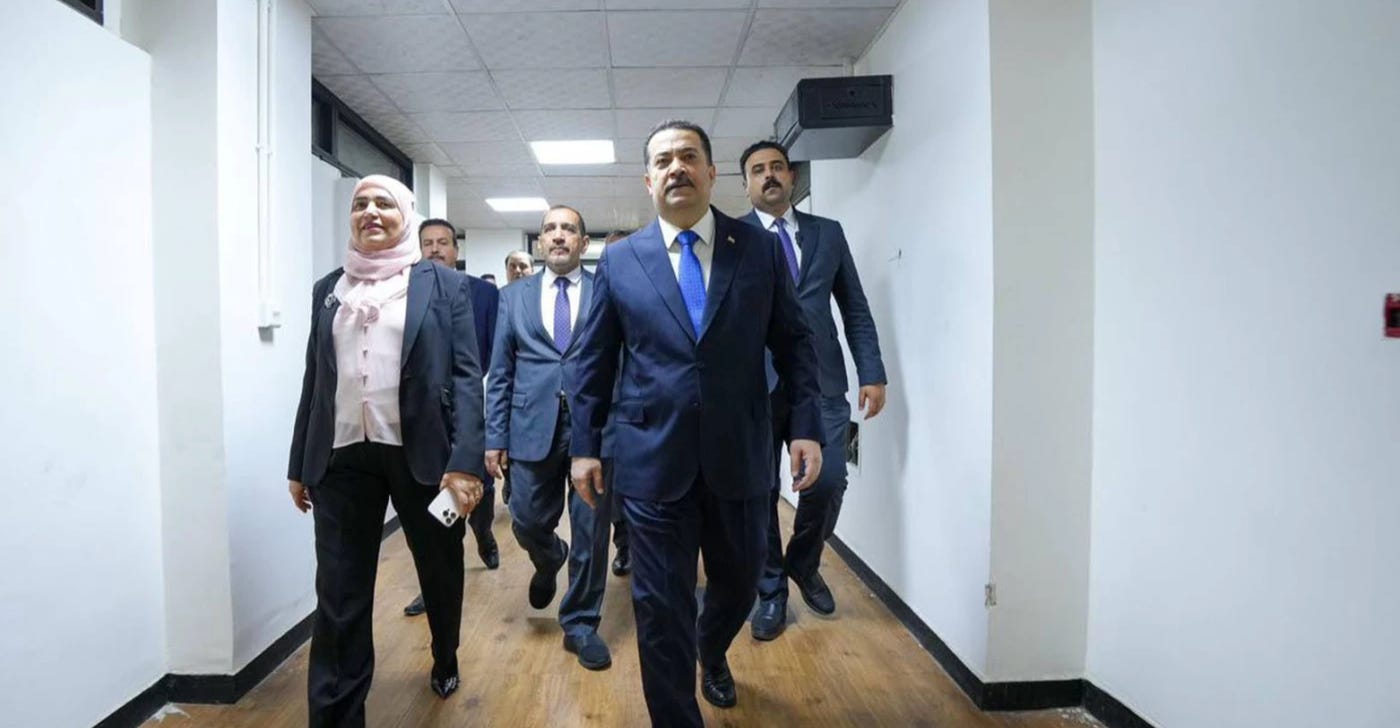
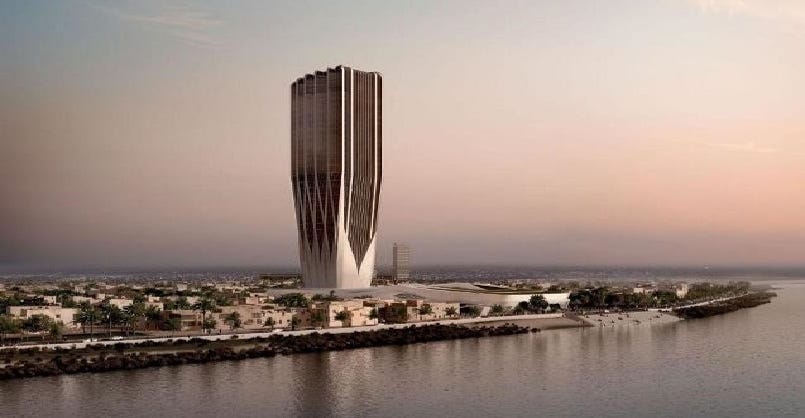
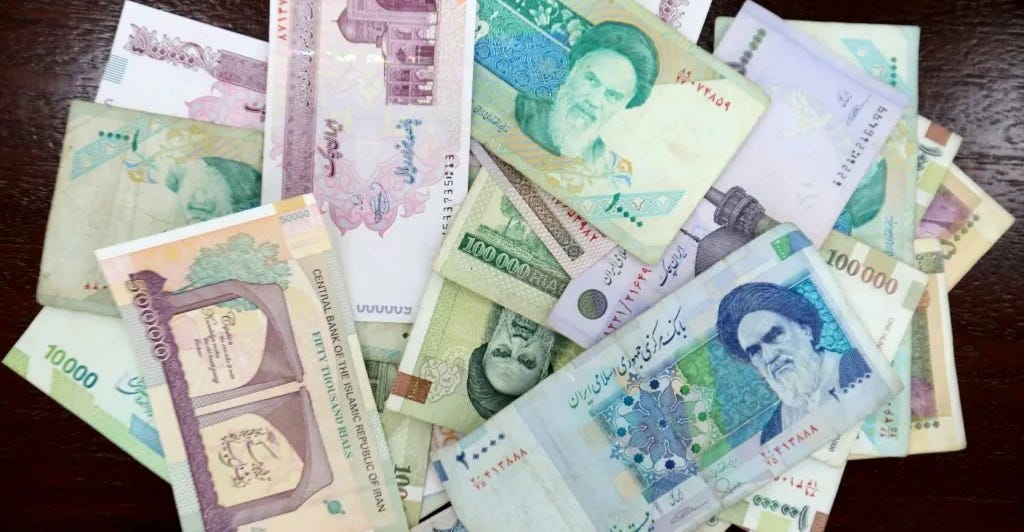
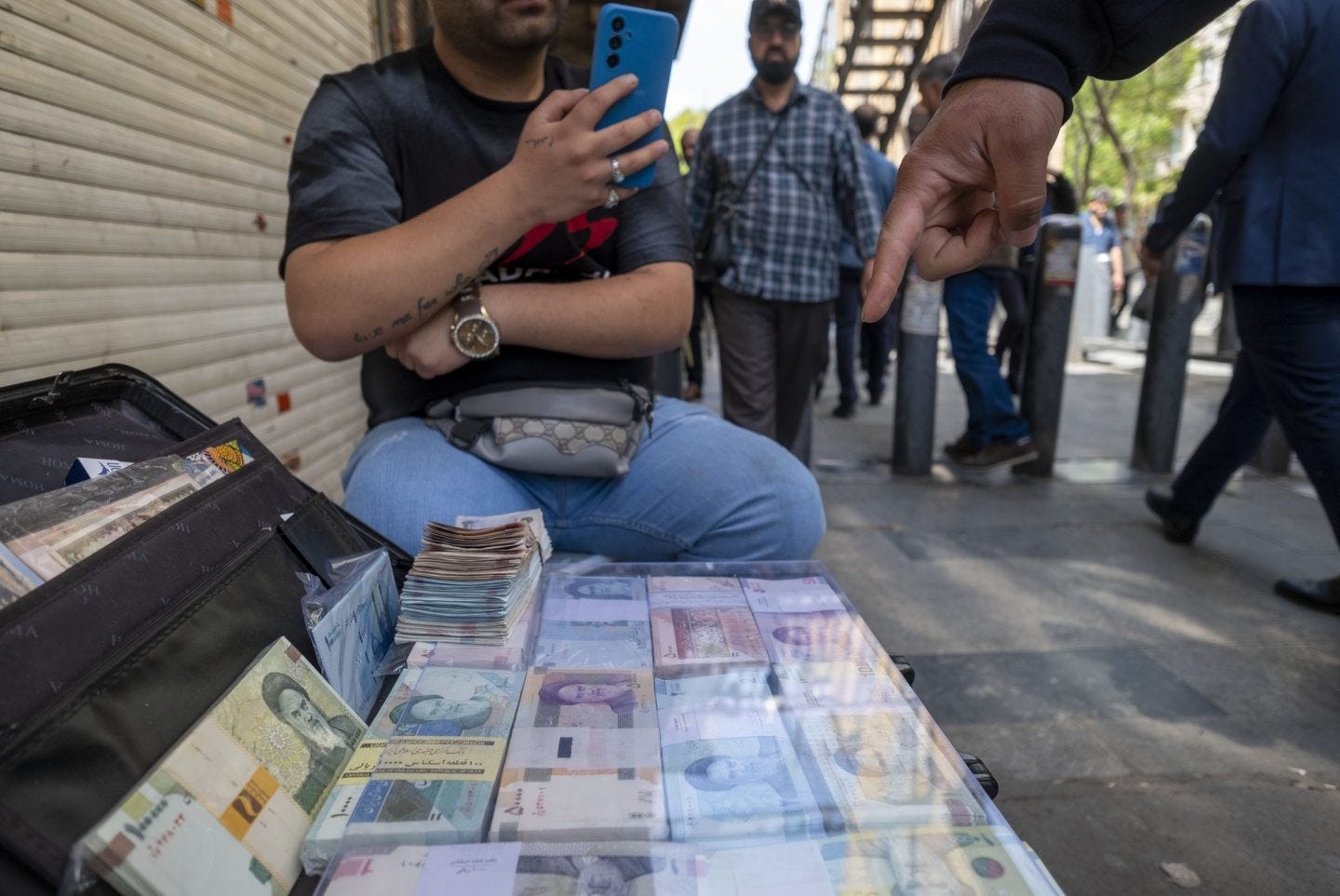
.png)
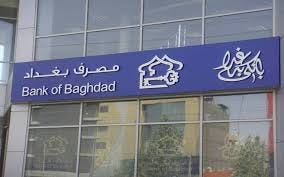
No comments:
Post a Comment